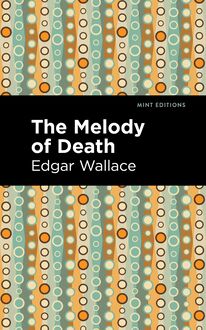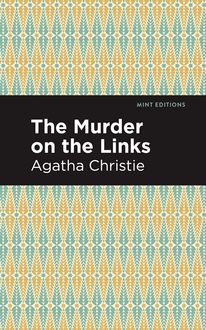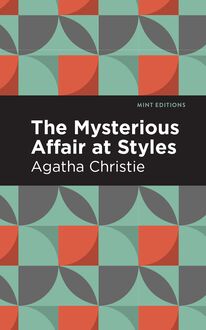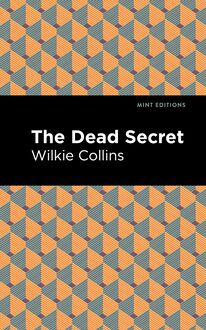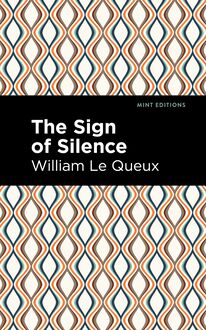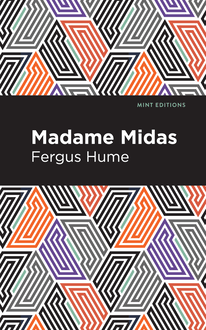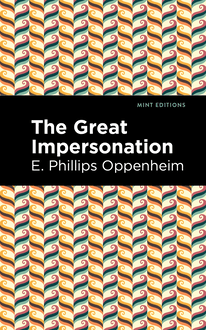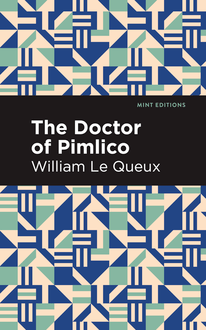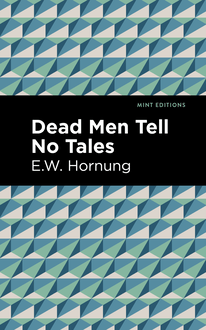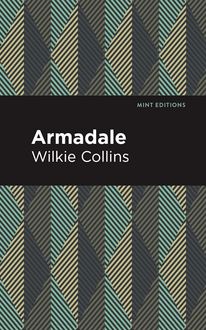-
 Univers
Univers
-
 Ebooks
Ebooks
-
 Livres audio
Livres audio
-
 Presse
Presse
-
 Podcasts
Podcasts
-
 BD
BD
-
 Documents
Documents
-
- Cours
- Révisions
- Ressources pédagogiques
- Sciences de l’éducation
- Manuels scolaires
- Langues
- Travaux de classe
- Annales de BEP
- Etudes supérieures
- Maternelle et primaire
- Fiches de lecture
- Orientation scolaire
- Méthodologie
- Corrigés de devoir
- Annales d’examens et concours
- Annales du bac
- Annales du brevet
- Rapports de stage
La lecture à portée de main
Vous pourrez modifier la taille du texte de cet ouvrage
Découvre YouScribe en t'inscrivant gratuitement
Je m'inscrisDécouvre YouScribe en t'inscrivant gratuitement
Je m'inscrisEn savoir plus
Vous pourrez modifier la taille du texte de cet ouvrage
En savoir plus

Description
Paul Ferroll (1855) is a novel by Caroline Clive. Published to widespread critical and commercial acclaim, Paul Ferroll gained comparisons to Jane Eyre and predated the rise of popular detective fiction, but has since been largely forgotten. A captivating novel of Victorian social conventions with elements of Gothic horror, Paul Ferroll is an underrecognized work of literature that remains both entertaining and ultimately open ended.
Paul Ferroll, a respected English magistrate, lives with his loving wife and young daughter at their comfortable country estate. When Ferroll’s wife is found murdered in her bed, the family’s idyllic image is disrupted forever. Although a servant is quickly arrested for the crime, a lack of evidence leads to his subsequent acquittal, raising questions about Ferroll’s increasingly reclusive behavior. Despite remarrying, Ferroll clearly harbors a dark secret. He turns away from friends and neighbors, forcing his daughter to raise herself. While an outbreak of cholera devastates the local village, Ferroll, a formerly generous public servant, turns a blind eye to their suffering. As acquaintances speculate, unsure if Ferroll remains in mourning or if his change of heart signals something much darker, his home becomes haunted with ghosts of the living. Building slowly toward its unbearable conclusion, Paul Ferroll investigates the motives that lead to murder, illuminating the condition of the male psyche with expert precision.
With a beautifully designed cover and professionally typeset manuscript, this edition of Caroline Clive’s Paul Ferroll is a classic of English literature reimagined for modern readers.
Sujets
Informations
| Publié par | Mint Editions |
| Date de parution | 09 mars 2021 |
| Nombre de lectures | 0 |
| EAN13 | 9781513278865 |
| Langue | English |
Informations légales : prix de location à la page 0,0500€. Cette information est donnée uniquement à titre indicatif conformément à la législation en vigueur.
Extrait
Paul Ferroll
Caroline Clive
Paul Ferroll was first published in 1855.
This edition published by Mint Editions 2021.
ISBN 9781513278407 | E-ISBN 9781513278865
Published by Mint Editions®
minteditionbooks.com
Publishing Director: Jennifer Newens
Design & Production: Rachel Lopez Metzger
Project Manager: Micaela Clark
Typesetting: Westchester Publishing Services
C ONTENTS I II III IV V VI VII VIII C ONCLUDING N OTICE
I
N othing looks more peaceful and secure than a country house seen at early morning. The broad daylight gives the look of safety and protection, and there is the tranquillity of night mixed with the brightness of day, for all is yet silent and at rest about the sleeping house. One glorious July morning saw this calm loveliness brood over the Tower of Mainwarey, a dwelling so called, because the chief part of the building consisted of a square tower many centuries old, about which some well-fitted additions of the more recent possessors had grouped themselves. It stood in the midst of a garden bright with summer flowers, which at this hour lifted their silver heads all splendid with dew and sunshine; and it looked down the valley to the village, which stood at a little distance, intersected and embowered with orchards, and crowned with the spire of the church. Early as it was, another half hour had not passed before the master of the house descended some steps which led from the window of his dressing-room, and walked through his blooming garden to the stable, where his horse was ready for him, as it had been every morning for the last few weeks; and whenever the day was beautiful as this was, he had passed the early hours in riding. As he got on horseback, he met a labourer belonging to the gardens coming to his work, and inquired what he was going to do. The man showed a basket of annuals which he was about to plant in the flower-garden, and being a simple fellow, inquired whether his master could tell if missus meant the blue anagallis or the white to be on the outside of the bed.
“Not I,” said Mr. Ferroll; “whichever you will.”
“Missus will be tremendgious if I’m wrong,” said the man, scratching his head.
Mr. Ferroll frowned at this epithet applied to his young wife, and bidding the man go about his work, rode off.
“It’s well enough for you who have the whip hand,” said Richard Franks, looking after his master; “but if ever a lady provoked the poor wretches under her…” and here his murmurs sank into inarticulate rumbling—but Mr. Ferroll was out of hearing.
He rode gently. The morning was delicious, and he occasionally spoke to a peasant going to his work, or saluted a whole family busy on their garden before the man went to his hired employment. Several of the peasants whom he met while he was still in his own immediate neighbourhood, had a word to speak with him about a job of work they wanted, or repair for a cottage, which they begged his honour to grant. He gave attention and discussed their matters with all, so that he made rather slow progress till he was at some little distance from home, but then he touched his horse with the spurs, and the gallant animal willingly indulged him in the pleasure of a gallop, which he seemed to enjoy with eager relish. He had taken a circuit in his gallop, so that between loitering in his slow pace, and diverging in his quick, it was past six o’clock when he arrived at the village to which his course was directed.
“I’m very early, Mr. Aston,” said he to the farmer at whose house he stopped; “but I knew I must find you at home at this hour.”
“Not a bit too early for us, sir,” said the farmer, “and I’m hugely obliged to you for taking the trouble. It’s all over with me, I believe, sir; but if any can help me, it’s you.”
“When is the day for examining the accounts?” asked Mr. Ferroll.
“To-morrow week, sir, and I declare I’m as innocent as a babby; and yet there’s a hundred of pounds as I cannot tell what’s gone with him.”
“Did not you keep your accounts like other overseers?” said Ferroll.
“Yes, I did just like the last two told me how; but there’s a great difference now, I believe, sir, in the way the upper people add them up.”
“Maybe so,” said Ferroll; “and do you know there was a great man once in the same plight as you, and Bacon was his name?”
“Pickle, you might have said, sir. Bacon might well be in pickle,” said farmer Aston, laughing heartily.
“Come, that’s well said; I love a man who can laugh under his troubles. I’ve good hope of you. Let’s see these books, these accounts; let me try to add them up the right way for you.”
“Breakfast was just ready if you please, sir,” said the farmer’s wife; “won’t you take a cup of tea and a bit of bread this morning, before you begin?”
“Thank you, I will with pleasure;” and he cut the loaf standing as he was, and ate with appetite the good bread, but rather made less of the tea without milk, seemed the produce of dried grass.
“I’m afraid you don’t like our tea, sir,” said the hostess, “though it’s five-and-sixpence a pound at Dewson’s shop.”
“That’s Dewson’s new way of adding up,” said Mr. Ferroll, smiling; “but, thank you, I’m more hungry than thirsty, and you see what a gap I have made in your loaf. So now the books, Aston, and let us set to work.”
The books kept by the overseer were indeed in a state of confusion, which the better order of things in the management of the poor might well find fault with. Farmer Aston, however, had not the least intent of cheating, but he had followed his predecessors’ example in taking the arithmetic of the thing for granted, and forcing a suitable conclusion, when it did not come naturally. Widow Grant appeared at every close where a shilling or a pound could not be accounted for. The things for which the parish was creditor on one side, it was debtor for on another, and at the end of all, to make the expenditure agree with the receipts, appeared his concluding item—“Muddled away £9 4s. 6 ½ d.” 1
Mr. Ferroll set to work to unravel as far as possible this confusion, and patiently listened to the recollection by which the farmer elucidated the written documents. The table was covered with little dirty bills, the summary of which Mr. Ferroll transferred to a fair sheet of paper, and among which he, with a clear head, was pursuing the almost hopeless clue, when the sound of a horse galloping furiously was heard, and a voice asking for God’s sake whether Mr. Ferroll was there. He heard his name, and looked up startled, but finished the calculation he was that moment upon, before he followed the farmer’s wife, who had rushed out of the room, and whom he found fallen on the bench before the door, while the messenger who had come for him stood trembling, and as white as a sheet before her.
“Oh, Lord! here he comes,” cried the matron, as he ran out. “Oh! poor gentleman, don’t tell him, Thomas.”
“What’s the matter?” said Mr. Ferroll, the colour mounting into his own face with expectation. “Speak out this instant.”
“My mistress, sir,” said the fellow, dropping his hands to his side, and the bridle fell loose at the same time, but the panting horse had no inclination to stir.
“Well, your mistress?”
“Dead!” said the man.
Mr. Ferroll’s eyes fixed them on his face, his lips were squeezed together, he did not seem to take in the word.
“She is dead, sir,” said the man; “oh! is worse than dead—they have killed her.”
“Killed your mistress!” he said; “you are mad yourself.”
“How quiet he takes it,” said the woman.
“He don’t believe it,” said the messenger. “Sir, she’s been murdered in her bed.”
Mr. Ferroll said not a word more; he asked not another question; but he walked like a drunken man to the stable, where his own horse was put up; and springing into the saddle, flew past the cottage almost like the speed of a bird, and vanished from their sight on the way home.
Home! and what a home! It was all peace and stillness when he left it. It was a scene of distraction, now—servants and villagers were about the door, and in the garden. Men were rushing for help, and only bringing more trembling spectators; the gate was wide open; the windows, some still barred, some thrown up; household employments all broken off—the household hurriedly one on another, terrified out of their senses.
They rushed to their master, when he arrived.
“What is the matter?” he said again, as if his apprehension refused all belief of what he had heard.
“It’s all true, sir,” said the constable, who had been secured among the rest. “Your lady has been murdered.”
Mr. Ferroll was a man of powerful will and habitual reserve; he seemed to force himself to an action he abhorred—turned towards the room.
“You had better not go in,” said the constable, holding his arm.
“ Seeing it is not the worst part,” said Mr. Ferroll, and went on.
The surgeon was in the room; he was still bending over the body, and his feet were dabbled with the blood, which was in a pool about the bed. The husband was deadly pale, but he forced himself on.
“Sir, were you here this morning?” said the surgeon.
“Yes, as late as half-past four. Is there no life?”
“Life has been extinct an hour or more,” said the surgeon. “Was the window open when you went away, sir?”
“Yes, she bade me leave it open. Who? who? …” he repeated, gasping, and forcing out the word.
“There is no trace as yet—no suspicion. Did you see anyone, sir?”
“No one,” said Mr. Ferroll.
“Well, it don’t matter asking him now,” said the surgeon, looking at him compassionately. “For God’s sake, sir, come out of the room;” but he still gazed on, though a shudder ran at times through his strong frame.
“She was murdered in her sleep,” said the surgeon; “it was some sharp, small instrument. The wound is not large, but deadly—just here,” and he pointed with his finger below the ear.
“And no trace left?” asked the husband, looking over the floor.
“None whatever, except there,” said the surgeon, pointing to a tub of water, which stoo
-
 Univers
Univers
-
 Ebooks
Ebooks
-
 Livres audio
Livres audio
-
 Presse
Presse
-
 Podcasts
Podcasts
-
 BD
BD
-
 Documents
Documents
-
Jeunesse
-
Littérature
-
Ressources professionnelles
-
Santé et bien-être
-
Savoirs
-
Education
-
Loisirs et hobbies
-
Art, musique et cinéma
-
Actualité et débat de société
-
Jeunesse
-
Littérature
-
Ressources professionnelles
-
Santé et bien-être
-
Savoirs
-
Education
-
Art, musique et cinéma
-
Actualité et débat de société
-
Actualités
-
Lifestyle
-
Presse jeunesse
-
Presse professionnelle
-
Pratique
-
Presse sportive
-
Presse internationale
-
Culture & Médias
-
Action et Aventures
-
Science-fiction et Fantasy
-
Société
-
Jeunesse
-
Littérature
-
Ressources professionnelles
-
Santé et bien-être
-
Savoirs
-
Education
-
Loisirs et hobbies
-
Art, musique et cinéma
-
Actualité et débat de société
- Cours
- Révisions
- Ressources pédagogiques
- Sciences de l’éducation
- Manuels scolaires
- Langues
- Travaux de classe
- Annales de BEP
- Etudes supérieures
- Maternelle et primaire
- Fiches de lecture
- Orientation scolaire
- Méthodologie
- Corrigés de devoir
- Annales d’examens et concours
- Annales du bac
- Annales du brevet
- Rapports de stage
